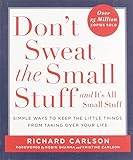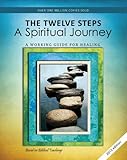April 5, 2007 -
• “If I could have stayed cool, I’d still be drinking. Very quickly, though, I started getting into trouble. Going to sixth grade got in the way of my life, which consisted of getting drunk as much as possible.” [After rehab] “I was going to A.A. meetings. Everyone was older, even most of the kids at the young people meetings. But I found that alcoholics understand other alcoholics. . . . Regardless of how young or old or ‘special’ I am, in A.A. I’m just a drunk.” Tina, who joined A.A. at 13
• “I loved drinking and was as addicted to the lies, the shady people and places as I was to the alcohol. My grades suffered until I stopped going to school altogether. . . . I found myself in places without any idea of how I had gotten there. I overdosed on alcohol.” Since coming to A.A., “I have been given an opportunity to grow up with the Twelve Steps in my life. It is with utmost gratitude that I have just celebrated my 19th year of continuous sobriety.” Kevin, who joined A.A. at 14
NEW YORK CITY-Tina and Kevin are two of the 19 very young alcoholics who relate their experience as recovering alcoholics in a revised pamphlet just released by Alcoholics Anonymous: “Young People and A.A.” Eight recollections by early teen and preteen alcoholics are included in the new edition, which also contains most of the original stories by alcoholics 25 and under.
The young A.A.s speak candidly about their preconceived notions of A.A. and what happened when they stepped tentatively into their first meetings. As Nicole, who sobered up at 14, says, “I knew A.A. held the solution to alcoholism. What I didn’t know was that anyone old enough to have a problem is old enough to seek help from A.A.”
Since the Fellowship began in 1935, the age of new members has constantly dropped. A.A. groups for young people began appearing as early as 1945 in Los Angeles, Cleveland and Philadelphia, and now can be found across the United States and Canada. Today approximately 10 percent of A.A. members are under 30.
In reaching out to young alcoholics, A.A. offers them a variety of special literature and audiovisual material, mainly available in Spanish and French as well as English. The stories help the young newcomer to A.A. understand that an alcoholic can “hit bottom” without going through 20-plus years of drinking, never mind the loss of family, friends and financial stability. Through identification with the recovery stories of people their own age, they learn they never have to feel so alone and frightened again-and can lead comfortable, happy, even exciting lives in sobriety.
Among other A.A. pamphlets that speak directly to young people are three in comic-book format: “Too Young,” in which teenagers aged 13 to 18 share their drinking stories; the newly revised “It Happened to Alice,” geared to young female alcoholics; and “What Happened to Joe,” which tells the story of a young construction worker on the edge of alcoholic self-destruction. A counterpoint to the pamphlet “Young People and A.A.” is the 28-minute video of the same name in which four young A.A. members tell the stories of their drinking and recovery in A.A., with closed captions for the deaf and hard-of-hearing.
To obtain a copy of the pamphlet “Young People and A.A.” or other A.A. literature and service material, call your local A.A. Intergroup or Central Office. For further information about A.A. publicinfo@aa.org
See also;


 Affirmations for the Inner Child
Affirmations for the Inner Child Codependent No More: How to Stop Controlling Others and Start Caring for Yourself
Codependent No More: How to Stop Controlling Others and Start Caring for Yourself Alcohol & Other Drug Recovery
Alcohol & Other Drug Recovery








